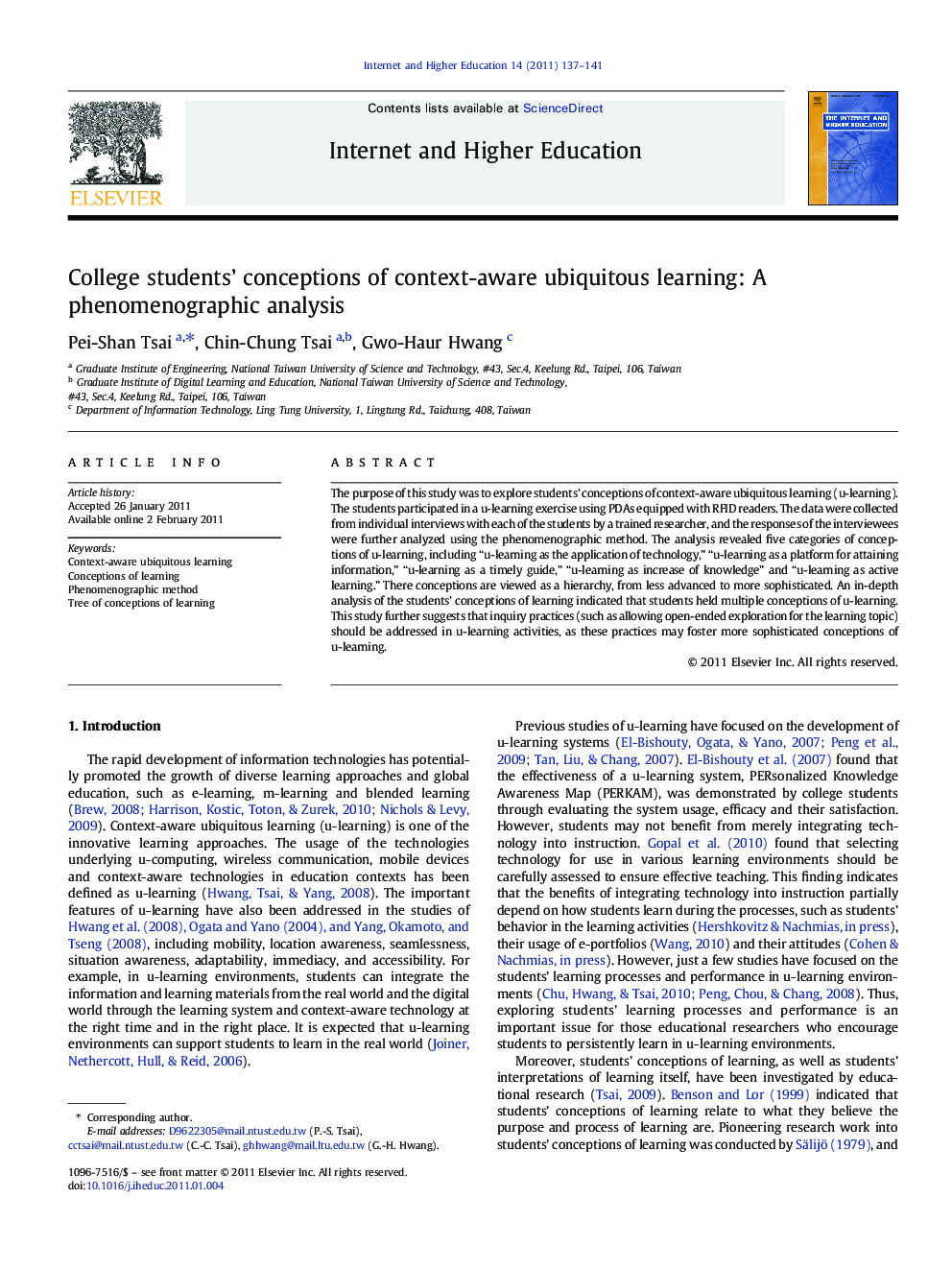| Article ID | Journal | Published Year | Pages | File Type |
|---|---|---|---|---|
| 357927 | The Internet and Higher Education | 2011 | 5 Pages |
The purpose of this study was to explore students’ conceptions of context-aware ubiquitous learning (u-learning). The students participated in a u-learning exercise using PDAs equipped with RFID readers. The data were collected from individual interviews with each of the students by a trained researcher, and the responses of the interviewees were further analyzed using the phenomenographic method. The analysis revealed five categories of conceptions of u-learning, including “u-learning as the application of technology,” “u-learning as a platform for attaining information,” “u-learning as a timely guide,” “u-learning as increase of knowledge” and “u-learning as active learning.” There conceptions are viewed as a hierarchy, from less advanced to more sophisticated. An in-depth analysis of the students’ conceptions of learning indicated that students held multiple conceptions of u-learning. This study further suggests that inquiry practices (such as allowing open-ended exploration for the learning topic) should be addressed in u-learning activities, as these practices may foster more sophisticated conceptions of u-learning.
